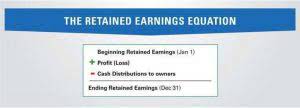
In short, GAAP is designed to ensure a consistent presentation of financial statements, making it easier for people to read and comprehend the information contained in the statements. Accountants must, to the best of their abilities, fully and clearly disclose all the available financial data of the company. They are obligated to acquire this information from the business, which is why an accounting team’s requests may seem intensely thorough when requesting financial information. When compiling reports, accountants must assume a business will continue to operate. GAAP must always be followed by accountants and businesses when handling financial information.
- It also facilitates the comparison of financial information across different companies.
- The ultimate goal of GAAP is to ensure a company’s financial statements are complete, consistent, and comparable.
- We believe everyone should be able to make financial decisions with confidence.
- The FASB issues an officially endorsed, regularly updated compendium of principles known as the FASB Accounting Standards Codification.
- If an investor doesn’t believe in pro-forma earnings, he or she can disregard the non-GAAP earnings and consider only the GAAP earnings.
- GAAP helps maintain trust in financial markets by ensuring that public companies’ financial information is accurate and easy to understand.
- As a result, firms close unremunerative business segments more frequently, sell those assets at a loss, and pay severance to workers.
Companies can use this information to their advantage and present totals that predict how their businesses will perform in the future. The GASB was established in 1984 as a policy board charged with creating GAAP for state and local government organizations. Many groups rely on government financial statements, including constituents and lawmakers. The Great Depression in 1929, a financial catastrophe that caused years of hardship for millions of Americans, was primarily gaap is concerned with making sure that financial reports are attributed to faulty and manipulative reporting practices among businesses. In response, the federal government, along with professional accounting groups, set out to create standards for the ethical and accurate reporting of financial information. Without these rules and standards, publicly traded companies would likely present their financial information in a way that inflates their numbers and makes their trading performance look better than it actually was.
Writing a Personal Statement
That is, since good faith, honesty, and general truthfulness are required by the GAAP, and thus by the SEC, investors have recourse in case a company’s financial operations are misrepresented. GAAP is a system for accounting that covers how financial documents are prepared. It also provides guidance for specific areas of economic reports, such as inventory systems, and how certain debts are handled. The principles it espouses function as both general ethical rules and specifics for how to report financial realities. This is all because the GAAP provides a level of consistency among all financial filings, through which those documents find a common ground. Any regulator or accountant will find that GAAP-compliant documents follow a similar logic and structure.
Tyson Foods Inc (TSN) Grapples with Operational Challenges Despite Sales Resilience – Yahoo Finance
Tyson Foods Inc (TSN) Grapples with Operational Challenges Despite Sales Resilience.
Posted: Mon, 13 Nov 2023 15:54:41 GMT [source]
Yet another difference between these two accounting standards is in how they classify liabilities. The IFRS, on the other hand, does not distinguish between the two sorts of liability. Thus, in an IFRS-compliant document, short-term and long-term are added together. Research & development, or R&D, https://www.bookstime.com/ is a large expense in many industry sectors. This is true under IFRS as well, however, IFRS also requires certain R&D expenditures to be capitalized (e.g. some internal costs like prototyping). The primary difference between the two systems is that GAAP is rules-based and IFRS is principles-based.
GAAP Principles
While the GAAP may seem to be the perfect tool to make accounting consistent across the board, it does have its limitations. Above all, the GAAP intends to promote honest financial reports that adheres to consistent vocabulary and certain protocols in the accounting process. Nonetheless, when analysts, creditors, and others open a GAAP-compliant document, they recognize its elements immediately. Each will have a balance sheet, income statement, and cash flow statement, for instance.

In an effort to move towards unification, the FASB aids in the development of IFRS. Many companies support non-GAAP reporting because it provides an in-depth look at their financial performance. However, the non-GAAP numbers include pro forma figures, which do not include one-time transactions.